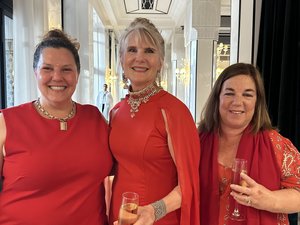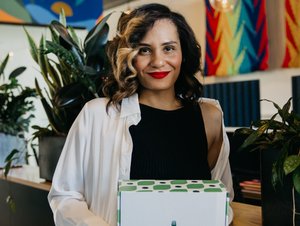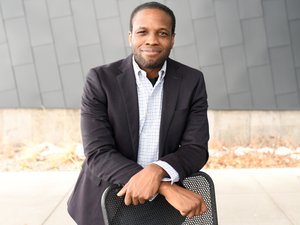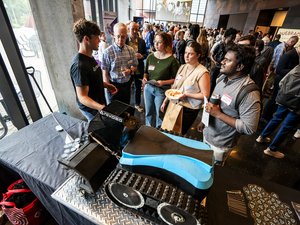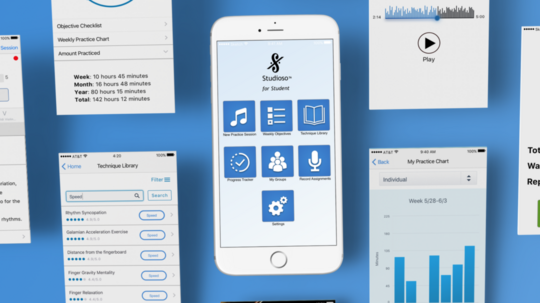
In the months since Studioso won the Minnesota Cup youth division, the company launched a fully functioning app, fielded interest from schools and universities wanting to incorporate it into music education programs, and found a place in yet another accelerator – this time in Southern California.
CEO Ocean Salazar said the company expects to sign contracts with its first institutional clients in the next few weeks.
“We’re learning a lot,” he said. “We’re making a lot of progress. ... I think we’re in a much better spot compared to where we were six months ago.”
The app, which connects music teachers to their students, has 800 registered users, he said. Most of them are teachers, who can use the app for free. (Student subscriptions cost $20 per year or $2 per month.) The company has focused on schools, universities, and private instructors first so that teachers feel comfortable using the app before their students join. Once they have schools on board, he expects they’ll start making revenue.
Salazar, 18, and a member of our 25 under 25 list, is studying business at the University of Southern California. Prior to the Minnesota Cup, he participated in gener8tor’s gBETA accelerator. Studioso is kicking off the new year as one of 13 making up the first EdVentures cohort – an ed-tech accelerator at USC that comes with support from the university’s business, tech, and education experts, as well as the Michelson 20MM Foundation, Bisk Ventures, and Blackstone LaunchPad USC.
Studioso designed the app to help students practice better, improve communication between students and teachers, and map students’ progress as they learn. A key feature – a library of practice methods – was compiled with help from teachers, musicians, and online sources, bringing together a trove of expertise a student might not find on their own.
“You have to use correct technique to make progress,” said Salazar, who played the violin for 14 years. For example, it’s common for music students to repeatedly play passages they’re already good at, neglecting the parts they don’t perform well, even though that actually limits improvement. “This is something teachers have been trying to teach students for a long time.”
